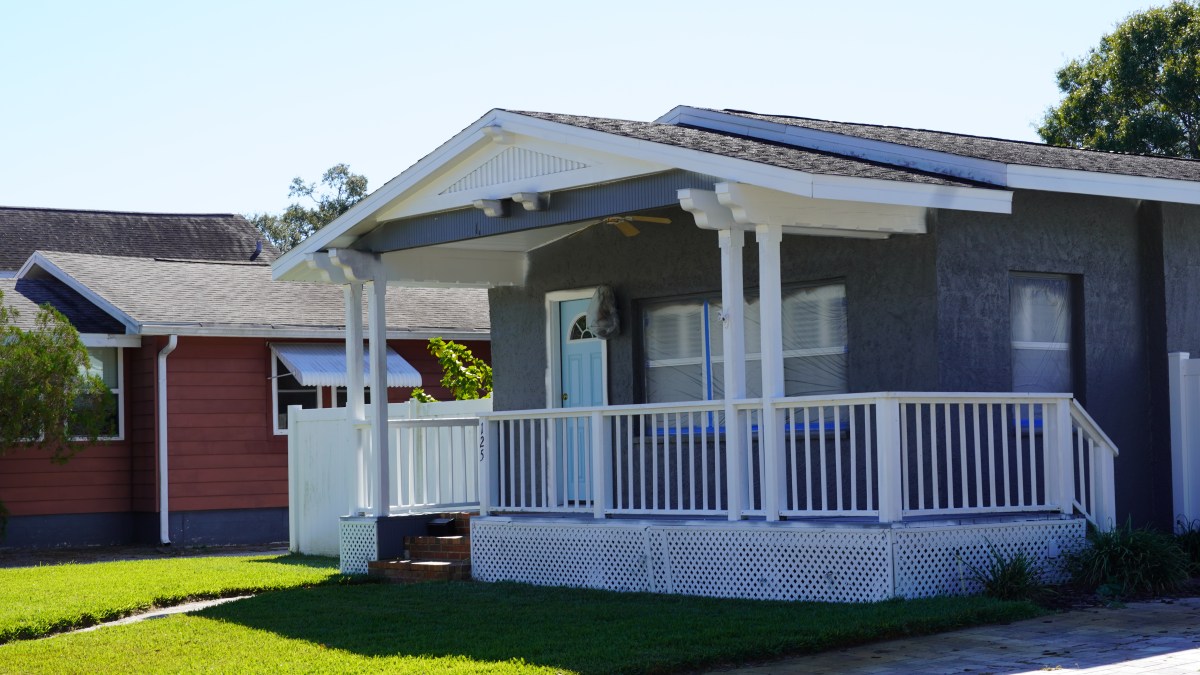Florida and Washington D.C. experienced the biggest September home price drops in the country compared to a year earlier, according to a new study by property intelligence platform Cotality.
Why It Matters
The vertiginous home price growth that has characterized the pandemic years has subsided this year, as inventory has grown across the country due to a fall in demand linked to higher housing costs, including rising home prices, mortgage rates, property taxes, and home insurance premiums.
But some of the markets which became particularly overheated during the pandemic home-buying frenzy, such as Florida, are now cooling down faster than the rest of the country.
 What To Know
What To Know
Nationwide, home prices were only 1.2 percent higher in September than a year earlier, according to Cotality—a much lower rate than those reported during the pandemic years. Month-over-month, prices were actually 0.2 percent lower.
This is because inventory has risen to the highest level since 2019, as many aspiring buyers are kept to the sidelines of the market by higher costs and growing economic uncertainty, which is making them more cautious.
In September, 20 percent of the country’s 411 U.S. metropolitan areas saw annual price drops, according to Cotality. But the situation varied wildly across the country.
Seven of the top ten coolest markets in the nation in September were in Florida—showing how the state has been affected by a stark price correction in recent months, which has followed a boom in construction during the pandemic and a subsequent explosion in for-sale inventory.
These were:
Champagne, IllinoisCape Coral, FloridaNaples, FloridaPunta Gorda, FloridaSebring, FloridaNorth Port, FloridaBrownsville, FloridaWichita Falls, TexasKahului, HawaiiSebastian, Florida
The top ten hottest markets in the nation, on the other hand, were focused in the Northeast, a region that is still facing an acute shortage of homes.
These were:
Muskegon, MichiganParkersburg, West VirginiaYoungstown, IndianaLima, OhioKokomo, IndianaPittsfield, MassachusettsDalton, GeorgiaWausau, WisconsinMuncie, Indiana
What People Are Saying
Cotality’s Chief Economist Dr. Selma Hepp said in the report: “Major Northeastern metro areas such as Boston, New York, and Philadelphia remain resilient thanks to sectors like finance, biotech, health care, and education.
“Strong and diversified local job markets continue to draw high-earning professionals and give them the income stability needed to purchase expensive homes. Additionally, many of these regions have nearby, mid-sized metros that are more affordable; these areas are increasingly popular with hybrid workers and high-income commuters seeking better value.
“Although recent declines in mortgage rates have provided support for housing activity, broader improvements in demand will depend on the strength of the labor market and corresponding consumer confidence.”
Cara Ameer, real estate broker at Coldwell Banker Vanguard Realty in Florida, told Realtor.com of the Florida markets facing significant price dips: “These towns are largely retirement and second-home places, so there is not much business or industry coming into these areas outside of tourism that generates jobs and keeps the economy going, so wages are lower and you don’t have people relocating to this area for jobs, hence less demand for buying as well as renting.
“All of this creates a perfect storm for a decline in property values.”
What Happens Next
In markets where prices are falling, like many in Florida, homeowners are finding themselves with quickly eroding equity—even as escrow costs continue to climb.
“People are paying an average of 45 percent more in escrow costs compared with five years ago, and that is pushing up monthly payments past the point of affordability,” Cotality wrote in its report. “The increasing cost of owning a home has in part led to properties spending longer on the market and deals being more difficult to close despite for-sale inventory growing.”
With prices falling, Florida has seen a rise in serious mortgage delinquencies, together with other states.
And even as prices are falling in many markets, homebuyers are still struggling to afford the property on the market. According to Cotality, 75 percent of the top 100 housing markets are still considered overvalued.

